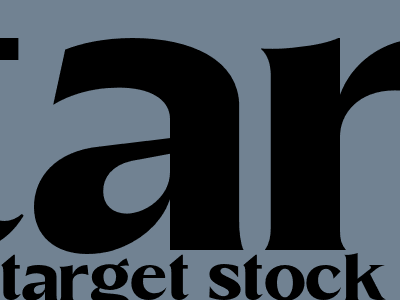
Target Corporation: A Comprehensive Stock Analysis
Company Overview
Target Corporation, a leading American retailer, operates over 1,900 stores in the United States and has a strong presence in grocery, home goods, apparel, and more. With a market capitalization of over $80 billion, Target is a well-established and widely recognized brand.
Financial Performance
Recent Earnings Report
In its latest earnings report, Target exceeded analysts' expectations, reporting a 4.5% increase in comparable sales and a 20% growth in digital sales. The company's adjusted earnings per share came in at $2.19, beating estimates of $2.13.
Key Financial Metrics
Target's financial metrics remain strong. In 2022, the company reported a gross profit margin of 29.4%, an operating margin of 6.8%, and a net income of $4.8 billion. Its debt-to-equity ratio is a conservative 0.36.
Growth Strategy
Focus on Grocery and Essential Goods
Target is investing heavily in its grocery and essential goods businesses, recognizing the increasing demand for these products. The company is opening more grocery-focused stores and expanding its online grocery delivery services.
Digital Transformation
Target is committed to digital transformation, aiming to provide a seamless omnichannel experience for its customers. The company is investing in e-commerce, mobile apps, and personalized marketing.
Competitive Landscape
Industry Overview
The retail industry is highly competitive, with several major players vying for market share. Target's main competitors include Walmart, Amazon, and Kroger. The company faces increasing competition from online retailers and discount stores.
Target's Differentiation Strategy
Target differentiates itself by offering a curated assortment of products, focusing on design and style. The company's private-label brands, such as Threshold and Good & Gather, have garnered a loyal following.
Investment Thesis
Growth Potential
Target's focus on grocery and digital transformation is expected to drive future growth. The company's strong brand recognition and customer loyalty are significant competitive advantages.
Valuation
Target's current valuation of around 19 times earnings appears reasonable given its growth prospects and financial stability. The company's dividend yield of approximately 1.7% provides additional income potential for investors.
Risks
Economic Downturn
An economic downturn could impact Target's sales and profitability, as consumers reduce spending on discretionary items. The company's dependence on consumer spending makes it sensitive to economic fluctuations.
Competition
Increasing competition from both traditional and online retailers poses a risk to Target's market share. The company must continue to innovate and differentiate itself to maintain its competitive position.
Conclusion
Target Corporation is a well-established and financially sound retailer with a strong growth trajectory. The company's focus on grocery, digital transformation, and differentiation strategy positions it for continued success. While risks remain, Target's long-term growth potential and reasonable valuation make it an attractive investment opportunity.